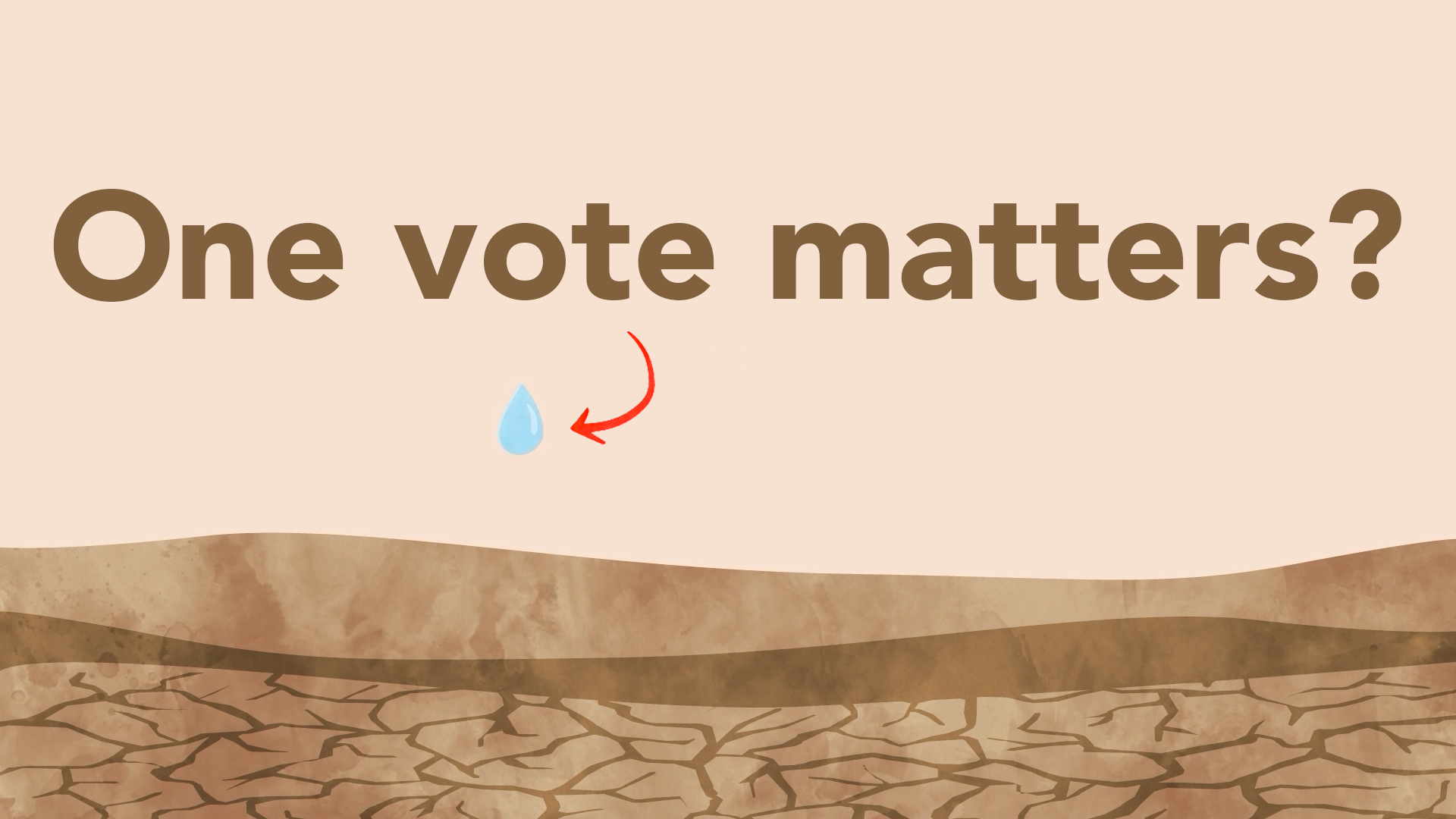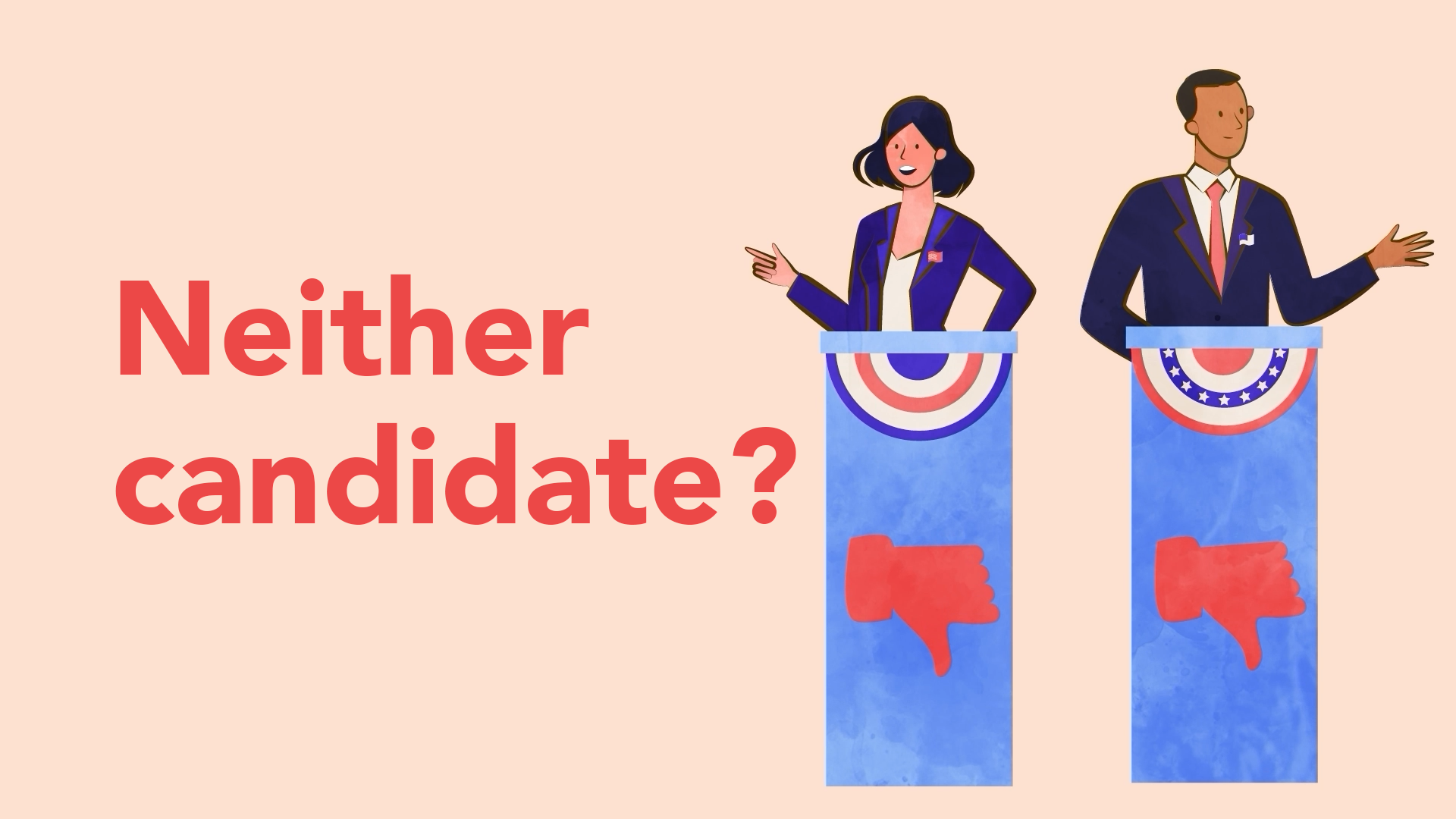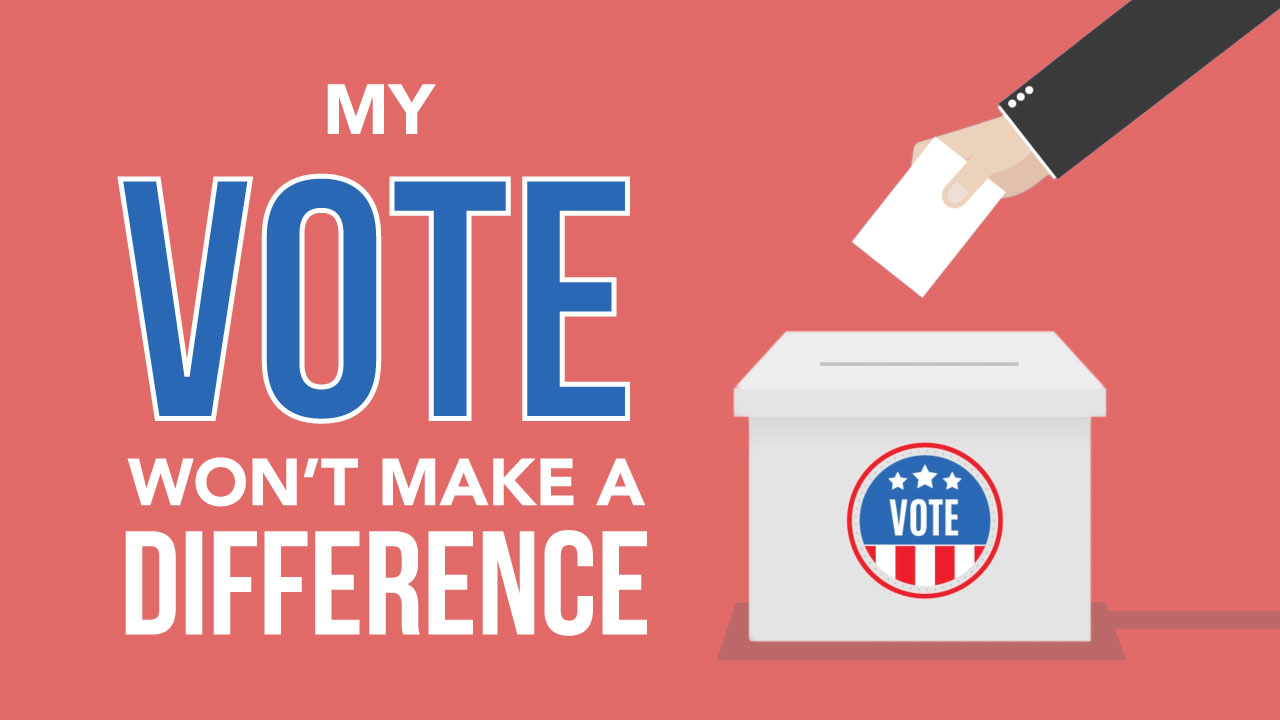You’re in a conversation and someone says, “I don’t like any of the candidates so I’m not voting.”
What would you say?
Sometimes choices in elections can be very difficult. In an ideal world, citizens would always have the chance to vote between really great people, and choose the one they agree with in every way.
Often, however, citizens do not have that option. But that doesn’t mean they should just throw away their ballots, and here are three reasons why:
1. A vote doesn’t always mean “I think they’re great.” It may just mean “I think they’re better.”
2. Vote for the best policies.
3. Vote for the best team.
You’re in a conversation and someone says, “I don’t like any of the candidates so I’m not voting.” What would you say? Sometimes choices in elections can be very difficult. In an ideal world, citizens would always have the chance to vote between really great people, and choose the one they agree with in every way. Often, however, citizens do not have that option. But that doesn’t mean they should just throw away their ballots, and here are three reasons why: Number 1: A vote doesn’t always mean “I think they’re great.” It may just mean “I think they’re better.” On social media we “like” posts as a way of showing our approval or affirming someone. In some ways, a “vote” feels the same, so we hesitate to vote because it feels like we’re affirming the person or showing our complete approval of everything they say and do. But voting to fill government offices is not the same as “liking” an Instagram post. It’s more like interviewing someone for a job. You may not be excited about any of the job applicants, but you still have to hire someone to fill the position. After looking through resumes and listening to the applicants, you’ll probably think one person would do the job better than the others, even if none of them were what you had hoped for. At the very least, you can probably decide who will do the least damage. Our ballot doesn’t always give us choices that we like, but that doesn’t mean we shouldn’t make a choice. Ballots, like the rest of life, often require us to choose between imperfect options. That leads to our second point. Number 2: Vote for the best policies. Character always matters, but if the options don’t include a person we can enthusiastically support, maybe they represent policies that we can enthusiastically support. Is one candidate working on behalf of the abortion industry while the other works to defend life? Does one candidate defend conscience rights while the other supports suing nuns and churches that live out their faith? Does one candidate want parents involved in their child’s education and health care decisions while the other wants the state to interfere with parental rights? Every voter must work out which issues matter most, but in a situation where all the candidates are flawed, we can gain clarity about who to vote for based on the policies they endorse. Which leads to the third point. Number 3: Vote for the best team. No politician works alone. Most candidates are part of a political party, and all candidates have donors and supporters. Executive offices, like mayors, governors, and presidents also appoint cabinet members, judges, ambassadors, and thousands of other positions that affect how government operates. In choosing one candidate over another, it’s important to think about the team that each brings along with them. If neither coach is ideal, which direction is the team going? Voting isn’t always easy. As in all of life, we’re often presented with imperfect choices, but that doesn’t mean we shouldn’t be involved. So next time someone tells you it’s best not to vote if you don’t like either candidate, remember these three things: Number 1: A vote doesn’t always mean “I think they’re great.” It may just mean “I think they’re better.” Number 2: Vote for the best policies. Number 3: Vote for the best team. For what would you say, I’m Joseph Backholm.





